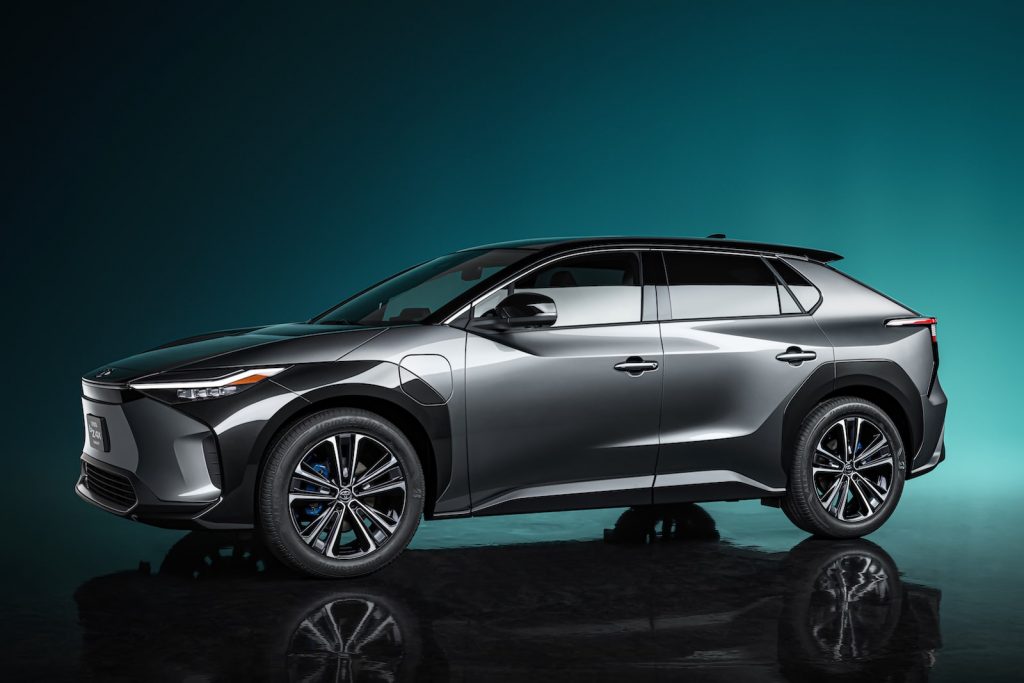Toyota delivered the first mainstream hybrid vehicle more than two decades ago, and the automaker says gasoline technology will continue to dominate its line-up going into the 2030s.
The Japanese giant has been a big proponent of conventional hybrids, such as its once groundbreaking Prius, but it continues to be skeptical about pure battery-electric vehicles, citing a variety of issues such as cost and the lack of a convenient public charging network.

“If you take a snapshot of 2030, the price of battery EVs and the provision of infrastructure around the globe probably won’t have advanced all that much,” Toyota executive Jun Nagata said during the company’s earnings news conference Wednesday. “Hybrids and plug-in hybrids will be easier for customers to buy.”
Battery electrics secondary to hybrids
Toyota does expect to see a sharp rise in the number of “electrified” vehicles it sells. CEO Akio Toyoda has laid out plans to offer conventional and plug-in hybrid options for virtually all of the company’s product lines by mid-decade. The new Sienna minivan and Venza SUV, for example, are offered solely with gas-electric drivetrains.
So, “70% of the Toyota and Lexus combined sales mix will be electrified (in one form or another) by 2030,” the company said in a statement “On a global basis, Toyota expects to sell approximately 8 million electrified vehicles by 2030, of which 2 million will be BEVs and FCEVs.”

The mix also will include some battery-electric vehicles. Toyota last year launched its first long-range BEV in Europe and revealed another at the recent Shanghai Auto Show. It has hinted that it will show off its first long-range U.S. model this spring. The carmaker already sells another form of zero-emission vehicle, its hydrogen-powered Mirai. The fuel-cell vehicle was completely redesigned for the 2021 model year.
“We’re strongly positioned to lead the world in the best reliable low-cost battery-electric vehicles,” said James Kuffner, Toyota’s chief digital officer.
But, in its statement, as well as Wednesday’s news conference, Toyota made clear that products without any internal combustion engine will play a minor role. The company “expects BEVs and FCEVs will make up 15% of its U.S. sales by 2030.”
Running uphill
That’s in sharp contrast to what a number of competitors are aiming for. A few, notably niche brands like Bentley, are aiming to go 100% BEV by 2030. Ford plans to sell only plug-based models in Europe by 2026, and will go pure electric by 2030. It also has doubled its planned investment in battery-based models and will roll out BEVs faster than planned just a year ago, senior product executive Hau Thai-Tang said recently.

General Motors and Volkswagen are two of the carmakers planning to go entirely BEV worldwide within the next 10 to 15 years.
The push for battery power might have begun in Japan but, with the exception of Nissan, automakers there have been reluctant to embrace technology beyond conventional hybrids – at least until now.
Subaru this week teased plans to launch the brand’s first all-electric model, the Solterra. It will share the same BEV drivetrain as the upcoming Toyota. Mazda is just launching its first BEV.
Honda, meanwhile, will launch two BEVs in the U.S. using underpinnings developed by General Motors. Then, it plans to add several more all-electric models using a new architecture developed in-house. But Honda officials expect hybrids and PHEVs to continue to dominate into the next decade, however, much like Toyota.
The Japanese leader’s executives have cited a variety of reasons why they don’t expect all-electric technology to become dominant anytime soon. The higher costs, range concerns and a lack of a charging network were serious concerns, said Kuffner. There are other ways to deal with climate change, he said during a news conference called to discuss the company’s latest earnings.
“The goal is not electric vehicles, the goal is carbon neutrality, and even if we have the best technology, if it’s not chosen by customers, it will not have the impact of reducing emissions,” he said.

